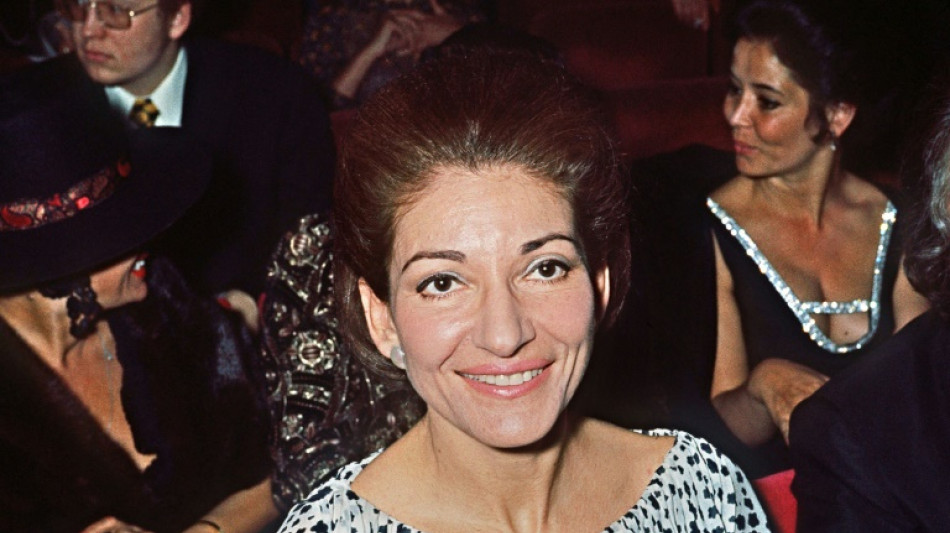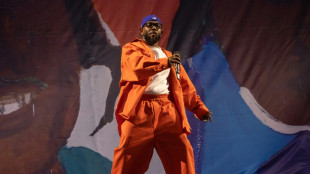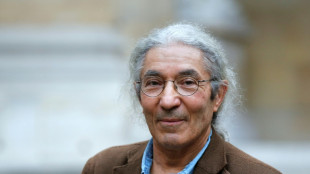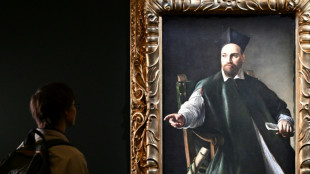

Divas never die: Eternal appeal of opera singer Maria Callas
Nearly 47 years after her death, one of opera's greatest stars, Greek soprano Maria Callas, is again taking centre stage at the Venice Film Festival played by Angelina Jolie in a new biopic.
The film "Maria" by Chilean filmmaker Pablo Larrain -- who has previously tackled other female icons including Jackie Kennedy and Princess Diana -- portrays the final days of a singer whose voice and style forever marked the world of opera.
Here are some of the turning points in the life of "La Divina".
- A star is born -
Callas received a standing ovation hailing her arrival as a new star as the curtain fell on the last act of Ponchielli's "La Gioconda" in Verona, Italy, on August 2, 1947.
She was born Sophia Cecilia Anna Maria Kalogeropoulou on December 2, 1923, in New York -- her family name later shortened to Callas.
Her family later moved back to Greece, where she started performing at the age of eight.
In Verona she met Giovanni Battista Meneghini, a wealthy industrialist who was passionate about opera. Twenty-eight years her senior, he became her impresario and then husband in 1949.
In 1954 she lost around 30 kilos (66 pounds) and transformed herself into the ultimate diva, taking top parts in the most well-known operas.
- The Rome scandal -
On January 2, 1958, Callas opened the Rome season with "Norma" in the presence of Italy's president, Giovanni Gronchi. But at the end of the first act, she lost her voice and refused to continue.
The temperamental diva was accused of being capricious as there had been whistles during one of her arias. But she insisted to the media: "As you could see, I could no longer speak."
- Onassis, her great love -
In 1959 Callas left Meneghini to embark on a passionate nine-year affair with Greek shipping tycoon Aristotle Onassis.
"Late at night one could see him, with Callas, in an Athens taverna where, having taken off his jacket and undone his tie, he showered the orchestra with gold and broke, as is Greek custom, piles of plates," AFP reported.
In 1968 Onassis left Callas to marry Jackie Kennedy, the widow of assassinated US president John F. Kennedy.
- Curtain call -
Callas turned her back on opera in 1965. On February 20 she triumphed in "Tosca" in Paris.
"The moment she appeared in the church in the first act, in a pink dress wrapped in a large deep-orange scarf, her arms full of flowers, the applause was such that it drowned out the music and the first lines were inaudible," AFP wrote.
But during a performance on May 29, she fell ill.
On July 5, she took to the stage despite the advice of her doctor for the last time in London, with Queen Elizabeth II in the audience.
- A final tour -
In 1973 Callas undertook an international tour of recitals.
In Paris, "bouquets rained onto the stage", accompanied by standing ovations and cries of "Vive Maria!", AFP wrote, even if the critics were "less enthusiastic".
- Her last breath -
Callas died at her Paris home on September 16, 1977, aged 53, after a heart attack.
"I have just seen her on her bed," said Michel Glotz, her former artistic director, in an AFP report.
"It was the image itself of 'La Traviata' as she performed it in 1956 at Milan's La Scala. There was not a line on her face. It seems like she was just resting," he said.
X.Quintero--LGdM




